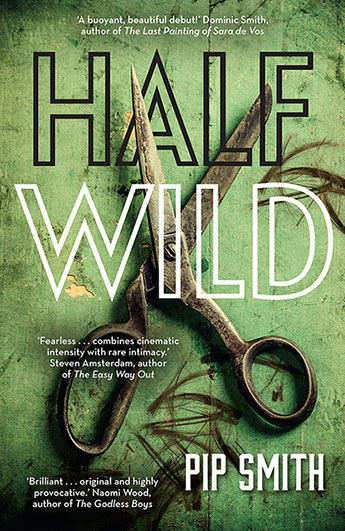Professional Editing
 Pamela Hewitt
Pamela Hewitt
6 x Wednesday evenings: 22, 29 May; 5, 12, 19, 26 June, 6:30-9:30pm
Full Price: $600
Member: $420
Conc Member: $360
This course has already taken place. Check out our upcoming online editing course with Pamela Hewitt, starting in October 2020 here>>
If you are an aspiring editor, or a writer with a final draft that needs extra polish and flair, Professional Editing with Pamela Hewitt is for you. The course takes you behind the scenes, demystifying the editing process and providing practical techniques for taking a text to the next level. In hands-on sessions, we will investigate the levels of editing, and how to identify and deal with a range of problems in drafts before publication. We also take a realistic look at trends in digital publishing and the paths to success in the competitive world of contemporary publishing.
This six-week course presents the essentials of professional editing. Editing is a compelling and rewarding career and this is a hands-on introduction to the trade. The course is designed for writers who want to improve their drafts and for those looking to establish or refresh their editing skills. Using practical examples and sample texts, you will develop the skills you need in an increasingly globalised and outsourced publishing industry. Editors need business nous combined with technical know-how as well as a deep feel for language. In addition to weekly face-to-face sessions, participants will receive resources for further skill development and weekly feedback on course topics.
Week-by-Week Course Breakdown
Week 1: Proofreading
Proofreading is much more than correcting spelling mistakes and placement of commas. A well-presented manuscript impresses publishers and readers alike.
Week 2: Copyediting
‘It needs a light copyedit,’ says the client. What does this really mean? You’ll find out as you work through a step-by-step process using sample texts. You’ll learn the common flaws in manuscripts and return to your latest text with new eyes and fresh ideas.
Week 3: Structural editing
When you restructure a piece of writing, the whole text is up for grabs. The structural editor works creatively with the author towards improving the text. In this session, we also consider sensitivity editing for diverse readers.
Week 4: Plain and simple
Like food, language appeals most when it’s fresh and varied. Whatever the writing technique, there is a relationship between clear writing and clear thinking.
Week 5: Editing for digital media
The screen is different from the page, so editing techniques need to be targeted to both format and device. What skills do editors need to keep up with digital publishing developments? We look at ground-breaking developments in writing for digital media.
Week 6: Editing as a career
In this guide to the working world, we discuss running a freelance business, identify start-up needs and devise a marketing plan. Whatever your genre or specialty as a writer or editor, marketing your skills is crucial to success.
Expected Learning Outcomes
Participants will:
- Develop the skills to approach fiction and non-fiction texts with the eye of a professional editor, including differentiating the three main levels of structural editing, copyediting and proofreading.
- Identify the flaws most commonly encountered in unpublished texts and develop techniques to improve them, enhancing readability and publishability.
- Enhance business skills as editors and writers operating in a globalised, digital media environment.
Participant Requirements
Participants should have a high level of language skills and at least basic competency in Microsoft Word or Word:Mac. You can take notes on your laptop or tablet or use pen and paper but digital and hard copy course notes are provided. Please ensure your device is charged.





